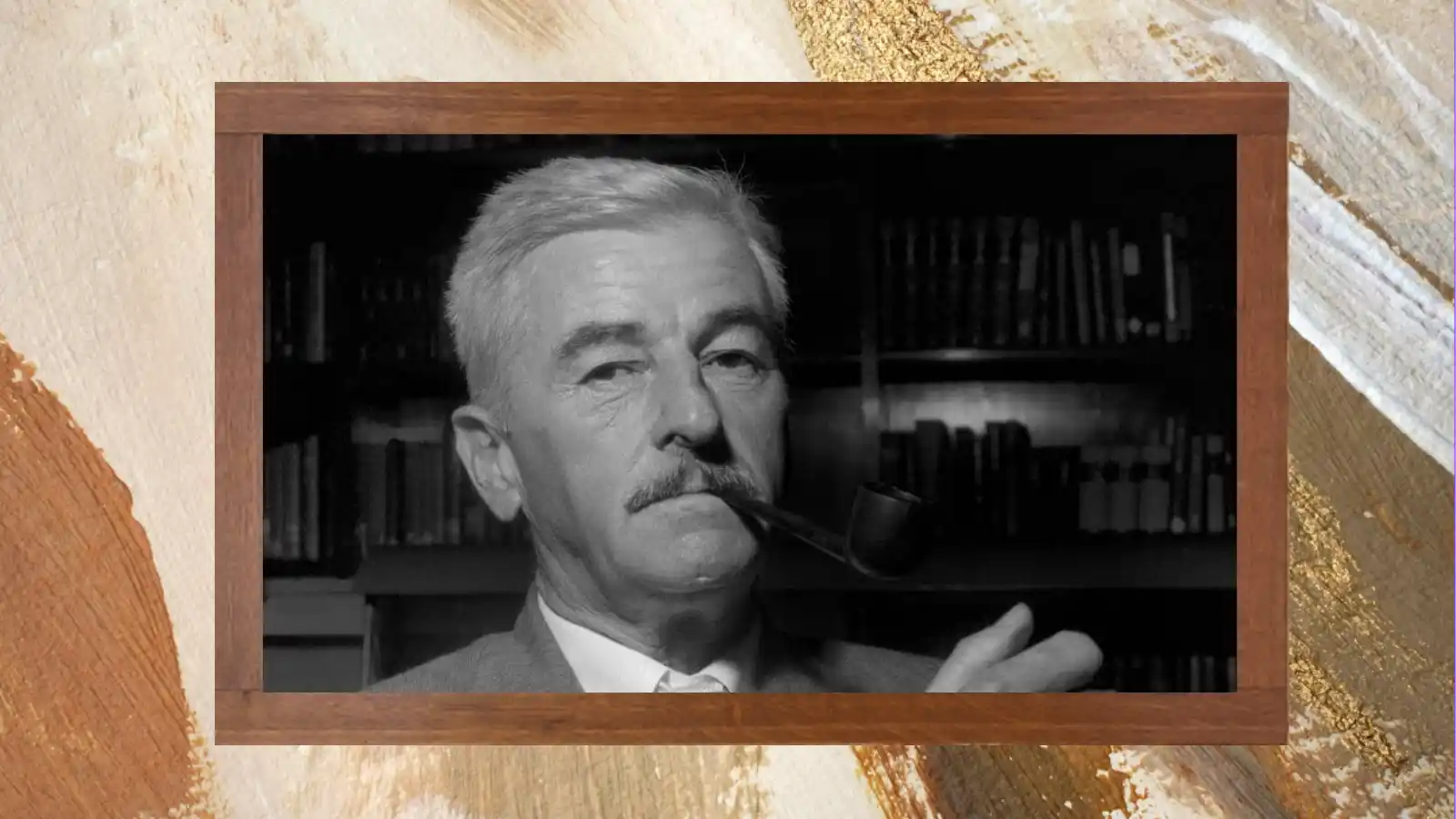William Faulkner, a towering figure in American literature, is celebrated for his profound contributions to the Southern Gothic genre. Born on September 25, 1897, in New Albany, Mississippi, Faulkner’s works such as "The Sound and the Fury" and "As I Lay Dying" have left an indelible mark on literary history. This article explores Faulkner’s life, career, financial standing, and lasting impact, providing comprehensive insights into his journey and achievements.
Quick Info Table
| Full Name | William Cuthbert Faulkner |
|---|---|
| Date of Birth | September 25, 1897 |
| Age (as of 2024) | N/A (Died July 6, 1962) |
| Occupation(s) | Novelist |
| Nationality | American |
| Ethnicity | Caucasian |
| Net Worth (2024) | Estimated $300,000 (adjusted for inflation) |
| Source of Wealth | Literature |
| Parents | Murry Cuthbert Falkner, Maud Butler |
| Marital Status | Married |
| Spouse | Estelle Oldham |
| Children | Jill Faulkner Summers |
| Education | University of Mississippi (non-graduate) |
| Known for | “The Sound and the Fury,” “As I Lay Dying” |
| Major Awards | Nobel Prize for Literature (1949), Pulitzer Prize (1955, 1963) |

Early Life and Education
William Faulkner was born into a prominent Mississippi family with deep Southern roots. His father, Murry Cuthbert Falkner, and mother, Maud Butler, provided a nurturing environment that fostered his early interest in literature. Faulkner was an avid reader and began writing poetry during his teenage years. Despite his talent, he struggled academically and eventually dropped out of high school. He briefly attended the University of Mississippi but left without graduating.
Early Beginnings
Faulkner’s literary career started with poetry, but he soon transitioned to prose. His early works, such as "Soldiers’ Pay" (1926) and "Mosquitoes" (1927), received moderate attention but did not establish him as a significant literary figure. It wasn’t until he began writing about the fictional Yoknapatawpha County—a microcosm of Southern life—that his work gained critical acclaim.
Breakthrough Projects
Faulkner’s major breakthrough came with the publication of "The Sound and the Fury" in 1929. This novel, known for its complex narrative structure and stream-of-consciousness technique, established Faulkner as a master of modernist literature. Subsequent works like "As I Lay Dying" (1930) and "Light in August" (1932) further solidified his reputation.
In 1949, Faulkner was awarded the Nobel Prize for Literature, recognizing his significant contribution to American letters. He continued to produce influential works, including "Go Down, Moses" (1942) and "Intruder in the Dust" (1948), which addressed racial issues in the South.
Recent Developments
Although Faulkner passed away in 1962, his work continues to influence contemporary literature. His novels are studied in academic institutions worldwide, and his themes of Southern decay, racial tension, and human frailty remain relevant. Posthumously, Faulkner received additional accolades, including a second Pulitzer Prize for his novel "The Reivers" (1962).
Net Worth and Sources of Wealth
At the time of his death in 1962, Faulkner’s net worth was modest compared to today’s literary giants. Adjusted for inflation, his estate was valued at approximately $300,000. His primary sources of income included book royalties, screenwriting for Hollywood, and teaching positions.
Major Financial Achievements
- Book Sales: Faulkner’s novels, particularly “The Sound and the Fury” and “As I Lay Dying,” have sold millions of copies worldwide.
- Screenwriting: Faulkner worked as a screenwriter for MGM and Warner Bros., contributing to films like “To Have and Have Not” (1944).
- Nobel Prize: The Nobel Prize for Literature came with a substantial monetary award, boosting his financial status.
Net Worth Growth and Future Projections
Faulkner’s net worth saw significant growth posthumously due to the enduring popularity of his works. His estate continues to earn royalties, and his books remain in print, ensuring a steady income stream. Future projections suggest that Faulkner’s literary legacy will continue to generate substantial revenue, particularly as digital formats and international translations expand his readership.
Personal Life
Faulkner married Estelle Oldham in 1929, and the couple had a turbulent relationship marked by infidelities and personal struggles. They had a daughter named Jill, who remained close to Faulkner throughout his life. Despite his marital challenges, Faulkner’s family remained a central aspect of his personal life.
Public Image and Media Perception
Faulkner was known for his reclusive nature and complex personality. He often shunned public appearances and preferred the solitude of his Mississippi home. Despite this, he was a vocal critic of social injustices, particularly racial segregation, which garnered both praise and criticism.
Lasting Legacy and Impact
William Faulkner’s influence on American literature is profound. His innovative narrative techniques and deep exploration of the human condition have inspired countless writers. Faulkner’s works remain a staple in literary curricula, and his themes of Southern identity, moral decay, and racial tension continue to resonate with modern readers.
FAQs
What is William Faulkner’s most famous work?
"The Sound and the Fury" is widely regarded as Faulkner’s masterpiece.
Did William Faulkner win any awards?
Yes, Faulkner won the Nobel Prize for Literature in 1949 and two Pulitzer Prizes.
What themes are prevalent in Faulkner’s works?
Common themes include Southern identity, racial tension, and moral decay.
Was Faulkner involved in Hollywood?
Yes, Faulkner worked as a screenwriter for several Hollywood studios.
How did Faulkner’s upbringing influence his writing?
Faulkner’s Southern upbringing and family history deeply influenced his depiction of Southern life and characters.
Conclusion
William Faulkner’s life and works offer a rich tapestry of literary excellence and Southern heritage. His contributions to literature continue to be celebrated, ensuring his place among the great American writers.






